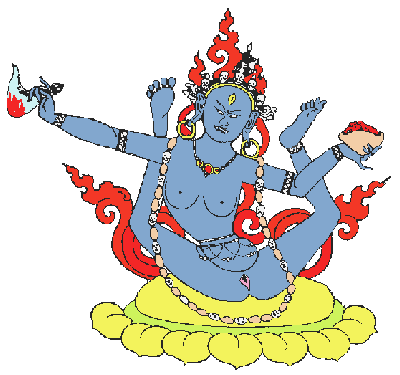1. Incorrect, some say Hinduism is an eternal religion and was never founded. Some say that Hinduism is actually the Tantra religion of the Indus valley civilization, and the Vedic people invaded them and brought their IE religion. Some say that Hinduism was founded by Shiva. Some say it was revealed first by Krishna and has been passed on since then through generations.
Hair-splitting. It's established across all amnayas that Rishis made it manifest, ie founded it, in society. It's also generally accepted to have existed prior to that, eternally.
2. Incorrect, the majority of Hindus have not read the Vedas, Upanishads and certainly not the Brahma sutras. Most Hindus don't read any scripture, they grow up with stories from the Itihas and Puranas. Shaivas and Shaktas do not accept the authority of the Vedas, they read their Tantras and Puranas.
Most religious people haven't read their scriptures either. You missed the point for sake of quibbling again...
3) Incorrect, Brahman is only accepted by the Vedanta schools. This Brahman is either an absolute reality or pure principle that one must realized through Gnosis which is an atheistic conception, to a personal creator who creates the world, judges humans and grants grace and heaven and must be worshiped which is a theistic conception. Massive difference.
Brahman is Shruti, and while perhaps more emphasized in vedanta - and let's be serious, virtually all Hinduism nowadays is Vedanta. Vedanta absorbed the other darshanas into itself, we find Brahman in the other astika darshanas, even Samkhya.
The Samkhya and the yogis do not accept Brahman. The Purva Mimassa does not accept Brahman either. The tribal and folk sects of Hinduism do not worship Brahman either, they worship rats, trees, animals and even people.
This is not true either, and discussing folk Hinduism as such smacks of Western bias. Mimamsa's focus is shabda brahman. The earliest Samkhya texts - the Svetasvatara and the Bhagavad Gita explicitly embrace Brahman/Ishvara.
4) Incorrect, the law of karma is not understood in the same way and reincarnation is not understand in the same way by all Hindus. Some Hindus regard the law of karma as an impersonal law of cause and effect, others regard it as a retributive law God that rewards and punishes sinners. Again massive difference.
Doesn't matter, it's a shared belief that is only strongly emphasized in dharmic religions. Missed the point again.
5) 'Varies' is just another word for no agreements on anything, which is exactly what my argument is saying Hinduism does not agree on anything.
Sects may agree on many things, or have only slightly different positions.
We can also pray together in the same temples, meditate together in the same places, and absorb the same principles within.
There are many sects within Abrahamic religions that find the most minor things to quibble over. How many nails was Jesus tacked up with?
6) Sadhana is a vague term that simply means "religious practice" which is a non-sequiter because the question is asking "What is the religious practice" and you are answering by saying "religious practice" The truth is there is no specific religious practice. Some meditate. Some worship a single monotheistic God. Some perform rituals sacrifices to the gods. Some just do their duty and fulfil their caste obligations. Some perform tantra rituals.
You're putting the wrong questions in the horse's mouth by way of missing the point, as you are wont to do. Belief in the necessity of practice is a unifying belief, rather than it being a passive religion where mere faith (sola fide, and its variant manifestations in Abrahamism) is sufficient, or living by abstract religious law in an arbitrary book - granted, some Hindus seek to apply the dharma smritis in such a manner.
7) Reincarnation is not really specific to Hinduism, because reincarnation is accepted by all dharmic religions.
Yes, a happy unity with Buddhism and Jainism from whom Hinduism has gained so much - and given so much too.
8) There you go then, no single path, every path and no path. No single truth, every truth and no truth. A mess.
An ecosystem. A synergy. A culmination of viewpoints in viewless gnosis.
Put as simply as I can, some people thrive on conflict and division and most of their intellectual output is dedicated to this. Result? Not only perception of difference, but also its enforcement through schismatic attitudes. Naturally they are not given to recognize the similarities and unifying aspects, it runs against their egoic interest to do so.

